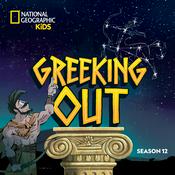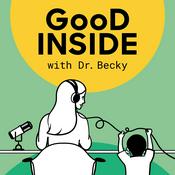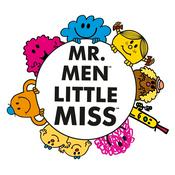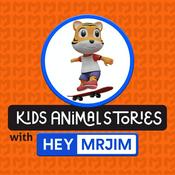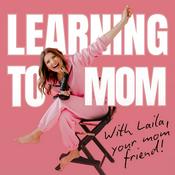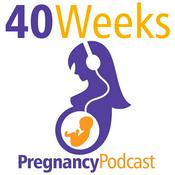Growing Connected with Dr. Jeffrey and Amy Olrick
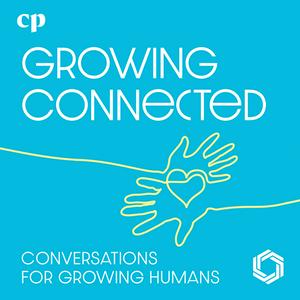
22 episodes

Eye Rolls, Sighs, and Slamming Doors: How to Teach Respect By Modeling Respect
2021/11/18 | 41 mins.
Today we’re discussing two questions sent in from a mom, and we suspect that most parents can relate to the first one—how do we deal with the eye rolls, sighs, and other “junk behaviors” that can accompany the tween and teen years? We talk about how frustrating interactions often indicate that our kids have reached a new stage of development and how modeling respect teaches them to understand and express themselves better over time. In the second half, we discuss tips for blending an adoptive or foster child into your family. Author Kelle Hampton joins the conversation as we explore ways to foster healthy communication and help kids feel secure, even amid transition.

Help When It's Hard to Connect: Support for a Dad Who Can't Relate His to Tween
2021/11/03 | 35 mins.
In this episode, we’re discussing a question from a mom wondering how to help her husband relate to their tween girl. We talk about dads and daughters and how this question points to an even bigger issue—how parents can respond to kids who feel different from or even difficult to them. Attachment science points us to two mirroring needs—comfort and delight—that we can use to connect to our kids, even when connection feels hard. Here’s the question— “My husband has started struggling with his interactions with our almost 13-year-old daughter. He just cannot relate to her emotions, feelings, and experiences anymore. I would love to know how to help him build a better relationship with her, so he does not continue to struggle.”

Facing Anxiety: How To Help Kids Fight Fear & Grow Strong
2021/10/21 | 47 mins.
In this episode, we’re discussing a question about a 13-year-old struggling with anxiety. Fortunately, anxiety is one of the most treatable mental health issues to work with, but doing that takes good information to help us face fear head-on. Social anxiety, in particular, can really take hold between the ages of 12 to 14, and we talk about why that is, what to expect, and ways to respond if you’re concerned. Author Kelle Hampton joins us to explore how to help our kids take charge of anxiety rather than let it control and manage them. Here’s the question: "With Covid and the transition into middle school, the past year has been hard on my 13-year-old. He seems to be reluctant to do things he used to enjoy, like getting together with friends or going to soccer practice. I honestly feel stuck, because sometimes when he tells me he doesn’t want to do something because he’s feeling anxious, I wonder if he’s exaggerating and just trying to get out of things. And if, in the long run, it would be better for me to try to force him to participate in activities until he feels more comfortable. As a mom, how should I know when to press in and when to back off. And do you have any advice for how to help a kid who seems paralyzed by his fears and anxiety? Especially when he says he doesn’t want to go to therapy or learn any coping skills. He tells me he just wants to be left alone."

When Parents Don’t Agree: Finding a Way to Talk about ADHD
2021/10/07 | 41 mins.
Anyone else ever disagree with your partner over a parenting issue? We don’t think it’s just us, and we’ve seen how these disagreements can cause friction in families. In this episode, we discuss a question from a mom wondering how to move forward when she and her husband see things differently about their daughter and ADHD. Jeffrey shares strategies he uses in the therapy office to get couples back to connection, and we talk about the pros and cons of diagnoses and labels for kids, as well as things to know when considering ADHD.

Changing Bodies, Changing Brains: 3 Huge Developments Every Teen's Parent Should Understand
2021/9/23 | 45 mins.
The tween and teen years can bring with them unexpected joy, as well as to-be-expected ups and downs. In this episode, we talk about emotions and hormones and three huge transitions happening within the teenage brain. Understanding what’s going on with our kids’ bodies really helps all of us! Here’s the question: “My kids are entering middle school this year. My son is 13 going into 7th grade and my daughter is 11 going into 6th grade. And I’ve noticed in the last couple of years that the changes they’ve been going through are reminding me of when they went from infancy to toddlerhood. There’s just so many changes and it’s all happening so fast. And I’m trying to hold this space of curiosity about them, and I’m wondering the best way to be with them and the best way to usher them through these enormous changes. It sometimes feels overwhelming and sometimes I really don’t know what the right next thing is. So, I’m just curious about your perspective on that.”
More Kids & Family podcasts
Trending Kids & Family podcasts
About Growing Connected with Dr. Jeffrey and Amy Olrick
Listen to Growing Connected with Dr. Jeffrey and Amy Olrick, Wow in the World and many other podcasts from around the world with the radio.net app

Get the free radio.net app
- Stations and podcasts to bookmark
- Stream via Wi-Fi or Bluetooth
- Supports Carplay & Android Auto
- Many other app features
Get the free radio.net app
- Stations and podcasts to bookmark
- Stream via Wi-Fi or Bluetooth
- Supports Carplay & Android Auto
- Many other app features


Growing Connected with Dr. Jeffrey and Amy Olrick
download the app,
start listening.







